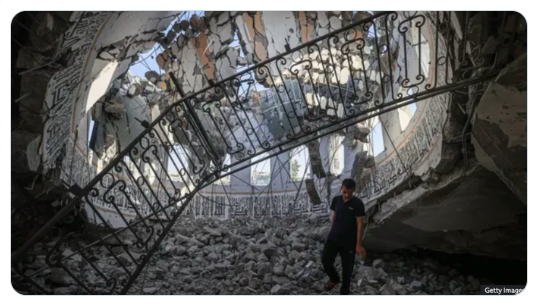Yom Kippur is Judaism’s holiest day, a time when individuals and communities confront their wrongs, seek forgiveness from those they’ve harmed, and renew their covenant with God. In 2025, this day arrives amid a fractured Middle East. Since October 2023, the Israeli-Palestinian conflict has claimed over 66,000 lives—mostly Palestinian—through relentless airstrikes, blockades, and escalating violence in Gaza and the West Bank. A fragile ceasefire in January 2025 collapsed by March, with famine-like conditions gripping Gaza and Israeli annexation plans advancing in the West Bank. International efforts, including a UN push for a two-state solution and an Arab League plan for Palestinian statehood, face resistance from Israel’s government, which prioritizes security over negotiation.
Yet, Yom Kippur’s message resonates: true atonement requires action—reaching out to those wronged before seeking divine forgiveness. For Israel, this could mean a bold gesture of peace, extended to Palestinians as an act of moral leadership. At
KatrinasDream.org, we envision a world where interfaith dialogue and compassion bridge divides. What if Israel seized this sacred day to embody those values, turning repentance into a roadmap for reconciliation?
1. A Call to Repentance (September 25–October 1)
In the Ten Days of Repentance leading to Yom Kippur, Israeli leaders could issue a public call for teshuvah, acknowledging the shared pain of October 7, 2023, for Israelis and the devastation in Gaza for Palestinians. Picture President Isaac Herzog addressing the nation, invoking the Vidui prayer’s spirit of collective confession: “We have sinned, we have caused harm.” Interfaith gatherings—rabbis, imams, and priests uniting in Jerusalem or virtually—could share stories of loss and hope, fostering empathy across divides. A unilateral ceasefire, halting airstrikes and settlement expansions, would signal Israel’s sincerity, aligning with Yom Kippur’s stillness, when the nation pauses in reflection.
2. Humanitarian Healing on Yom Kippur (October 1–2)
On Yom Kippur itself, Israel could open Gaza’s crossings—Rafah, Erez—for unrestricted humanitarian aid, addressing the famine threatening over 1 million Palestinians. Releasing 500+ Palestinian prisoners in exchange for 20–30 Israeli hostages, as proposed in recent U.S.-mediated plans, would build trust. Medical evacuations for 12,000+ patients could begin under UN oversight, ensuring aid reaches those in need. During Kol Nidrei services, Israeli and Palestinian leaders could hold virtual dialogues, sharing personal apologies for past harms—a direct nod to Yom Kippur’s teaching that we must seek human forgiveness first. In the West Bank, pausing demolitions and allowing displaced families to return temporarily would ease tensions fueled by annexation plans.
3. A Diplomatic Path Forward (October 3 Onward)
Post-Yom Kippur, Israel could launch direct talks under international mediation, building on proposals like U.S. envoy Steve Witkoff’s 60-day truce plan. This would involve phased Hamas disarmament, Israeli withdrawal to pre-1967 lines with land swaps, and Gaza’s reconstruction, funded by Arab states. Recognizing Palestinian statehood—tied to demilitarization and anti-terror commitments—would align with global calls for a two-state solution, endorsed by 150+ UN members. A “Middle East Peace Forum,” backed by Egypt, Jordan, and Saudi Arabia, could solidify regional support, drawing on the Abraham Accords’ spirit of cooperation. Long-term, shared economic projects—like water resource management or trade zones—could foster interdependence, ensuring both peoples thrive.
Challenges and Hope
This vision isn’t without obstacles. Israel’s government, led by Prime Minister Benjamin Netanyahu, rejects Palestinian statehood, prioritizing indefinite control over Gaza and annexation of 82% of the West Bank. Hamas demands full Israeli withdrawal without disarmament, while Palestinian suffering—exacerbated by blockades—breeds skepticism of symbolic gestures. Yet, global pressure, from EU sanctions threats to UN recognition of Palestine, signals urgency. Israel’s war-weary public, seen in weekly protests for hostage deals, craves peace. Yom Kippur’s moral weight could galvanize leaders to act, proving that vulnerability is strength.
At
KatrinasDream.org, we believe peace begins with listening—across faiths, borders, and histories. Yom Kippur 2025 could be a turning point, where Israel leads with atonement, offering Palestinians not just words but actions: aid, freedom, and a seat at the table. As the liturgy declares,
“For on this day He will forgive you… that you be cleansed from all your sins.” Let’s dream of a day when both Israelis and
Palestinians live side by side in security and dignity, their shared humanity affirmed.
Join the Dream
KatrinasDream.org invites you to reflect on this vision. How can we, as a global community, support reconciliation? Share your thoughts, join our interfaith dialogues, or advocate for peace in your community. Together, let’s make Yom Kippur 2025 a beacon of hope for Israel, Palestine, and the world.
This article is inspired by the mission of KatrinasDream.org to foster peace, justice, and interfaith understanding. For more on our work, visit KatrinasDream.org. And invokes the Bubble of Love Prayer.


